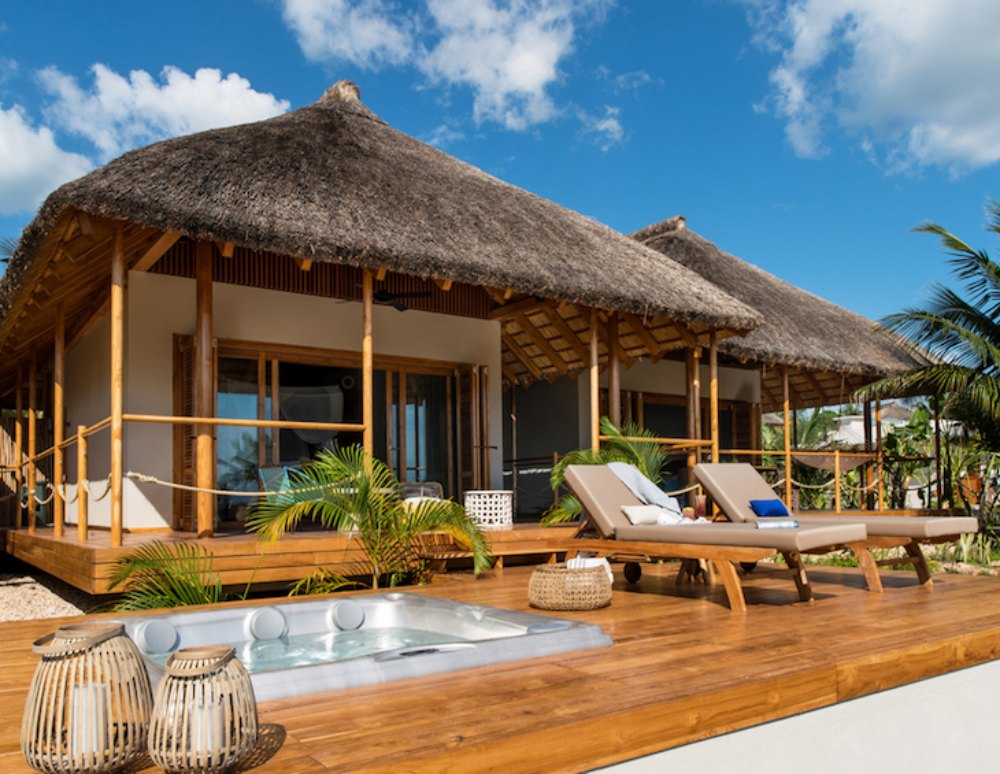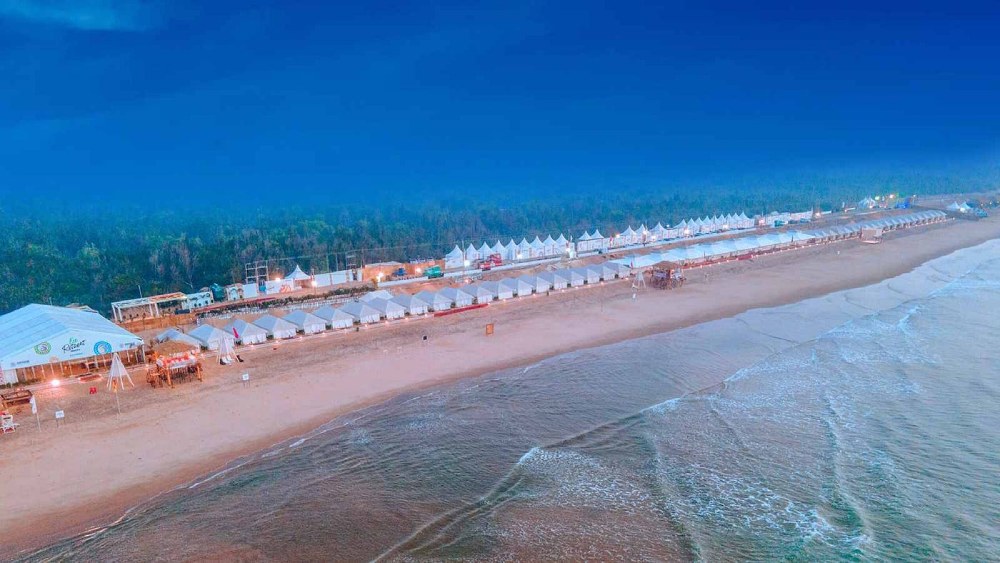As the world becomes increasingly aware of environmental issues, travelers are seeking more sustainable options when it comes to accommodation. Eco-friendly accommodations, particularly eco retreats, have emerged as a popular choice for those looking to reduce their ecological footprint while enjoying unique travel experiences. In India, where diverse landscapes and rich cultural heritage coexist, eco retreats offer a perfect blend of comfort and sustainability. This comprehensive guide delves into the concept of eco-friendly accommodations, the benefits of choosing eco retreats, notable examples across India, and practical tips for travelers seeking a sustainable stay.
1. Understanding Eco-Friendly Accommodations
1.1 Definition of Eco-Friendly Accommodations
Eco-friendly accommodations, also known as green hotels or eco lodges, are establishments that prioritize sustainability in their operations. They aim to minimize their environmental impact through various practices such as:
- Using renewable energy sources
- Implementing water conservation measures
- Reducing waste through recycling and composting
- Sourcing food and materials locally
- Supporting local communities and conservation efforts
1.2 The Rise of Eco Retreats
Eco retreats are a specific type of eco-friendly accommodation that focuses on providing immersive experiences in natural settings. These retreats often emphasize wellness, relaxation, and a deeper connection with nature, making them an attractive option for travelers seeking rejuvenation while being environmentally conscious.
Also Read- Take A Glamping Trip In Odisha To Have An Experience Of A Lifetime!
2. The Benefits of Choosing Eco-Friendly Accommodations
2.1 Environmental Conservation
One of the most significant benefits of eco-friendly accommodations is their commitment to environmental conservation. Here’s how they contribute:
- Sustainable Practices: Many eco retreats adopt sustainable practices, such as utilizing solar power, rainwater harvesting, and energy-efficient appliances to reduce their carbon footprint.
- Waste Management: Eco retreats often implement robust waste management systems that include composting, recycling, and minimizing single-use plastics.
- Biodiversity Protection: By promoting responsible tourism, eco retreats help protect local ecosystems and wildlife. Many retreats engage in conservation efforts to restore habitats and protect endangered species.
2.2 Supporting Local Communities
Choosing eco-friendly accommodations also benefits local communities:
- Job Creation: Eco retreats typically employ local staff, providing them with sustainable livelihoods and job opportunities.
- Local Sourcing: These retreats often source food, crafts, and materials from local suppliers, ensuring that the economic benefits of tourism directly support the community.
- Cultural Preservation: Eco retreats often celebrate local traditions and cultures, providing travelers with authentic experiences while helping to preserve cultural heritage.
2.3 Unique Travel Experiences
Staying at an eco retreat offers travelers unique and enriching experiences:
- Immersion in Nature: Eco retreats are often located in stunning natural settings, allowing guests to immerse themselves in the beauty of their surroundings through outdoor activities such as hiking, birdwatching, and yoga.
- Wellness Focus: Many eco retreats emphasize wellness, offering holistic programs that include yoga, meditation, organic meals, and spa treatments, promoting both physical and mental well-being.
- Culinary Experiences: Eco retreats often serve organic, locally sourced meals, providing guests with the opportunity to taste regional cuisine made from fresh ingredients.
3. Notable Eco Retreats in India
India boasts a variety of eco retreats that exemplify sustainable practices and offer unique experiences. Here are some notable examples:
3.1 Vana Retreat, Uttarakhand
Nestled in the Himalayas, Vana Retreat is a luxurious wellness retreat that emphasizes holistic health. The retreat focuses on sustainability by sourcing organic produce from local farms, utilizing renewable energy sources, and implementing waste reduction practices. Guests can indulge in wellness therapies, yoga, and nature walks while surrounded by stunning mountain vistas.
3.2 The Lalit Resort & Spa, Bekal, Kerala
Set along the serene coastline of Kerala, The Lalit Resort & Spa combines luxury with sustainability. The resort employs energy-efficient technologies, engages in water conservation, and supports local communities through various initiatives. Guests can enjoy Ayurvedic treatments, beach activities, and local cuisine while contributing to conservation efforts.
3.3 SwaSwara, Gokarna, Karnataka
SwaSwara is an Ayurvedic wellness retreat that focuses on holistic healing and self-discovery. The retreat promotes sustainable practices through organic farming, local sourcing of ingredients, and a commitment to environmental conservation. Guests can participate in yoga, meditation, and wellness workshops while enjoying the pristine beauty of Gokarna’s beaches.
3.4 Barefoot, Havelock Island, Andaman and Nicobar Islands
Barefoot is an eco-friendly resort that promotes sustainable tourism in the Andaman Islands. The resort utilizes locally sourced materials for its accommodations and emphasizes conservation efforts in the surrounding marine environment. Guests can enjoy activities like snorkeling, kayaking, and exploring the island’s natural beauty while supporting responsible tourism practices.
3.5 The Green House, Kasol, Himachal Pradesh
The Green House is an eco-friendly retreat in the scenic Parvati Valley. The accommodation is built using sustainable materials and offers eco-conscious amenities. Guests can explore the beautiful mountains, go trekking, and experience the vibrant local culture while enjoying a sustainable stay.
4. Practical Tips for Choosing Eco-Friendly Accommodations
4.1 Research and Certifications
When looking for eco-friendly accommodations, research is key. Consider the following:
- Look for Certifications: Check for certifications from recognized organizations such as Green Globe, EarthCheck, or LEED, which indicate adherence to sustainable practices.
- Read Reviews: Look for reviews from previous guests to gauge the authenticity of the eco-friendly claims and the overall experience.
4.2 Location Matters
Choose eco retreats located in natural settings, such as mountains, forests, or near rivers and lakes. The location not only enhances your experience but also supports conservation efforts in those areas.
4.3 Assess Sustainable Practices
When selecting an eco-friendly accommodation, consider their sustainable practices, such as:
- Energy Sources: Does the retreat use renewable energy sources like solar or wind power?
- Water Conservation: Are there measures in place for water conservation, such as rainwater harvesting or low-flow fixtures?
- Waste Management: How does the accommodation manage waste? Look for recycling and composting initiatives.
4.4 Engage with the Local Community
Choose accommodations that encourage engagement with the local community. Look for eco retreats that offer cultural experiences, such as local cooking classes, guided tours, or artisan workshops.
4.5 Be Mindful of Your Own Impact
As a traveler, you also play a role in ensuring sustainable practices during your stay. Consider the following:
- Reduce Waste: Minimize single-use plastics by bringing reusable bags, water bottles, and utensils.
- Conserve Resources: Be mindful of energy and water usage during your stay.
- Respect Local Customs: Engage respectfully with local cultures and traditions, ensuring your presence is a positive influence.
5. Challenges Facing Eco-Friendly Accommodations
While the concept of eco-friendly accommodations is gaining popularity, several challenges remain:
5.1 Awareness and Education
Many travelers may still be unaware of the benefits of choosing eco-friendly accommodations. Increased awareness and education are crucial to promoting sustainable practices in the travel industry.
5.2 Balancing Luxury and Sustainability
Some eco retreats face the challenge of balancing luxury with sustainability. While guests may seek comfort and luxury, it is essential to ensure that eco-friendly practices remain at the forefront of the experience.
5.3 Economic Viability
For eco retreats to thrive, they must remain economically viable. Operators need to find ways to attract guests while maintaining their commitment to sustainability, which can be challenging in competitive markets.
Also Read- The Benefits of Sustainable Travel
6. The Future of Eco-Friendly Accommodations in India
As the demand for sustainable travel options continues to grow, the future of eco-friendly accommodations in India looks promising. Here are some trends to watch:
6.1 Government Support and Policies
The Indian government is beginning to recognize the importance of sustainable tourism and eco-friendly practices. Initiatives to promote eco-tourism and conservation are likely to grow, offering support to eco retreat operators.
6.2 Technological Innovations
Advancements in technology will play a significant role in promoting sustainability in accommodations. From energy-efficient appliances to smart systems for resource management, technology can enhance the eco-friendliness of accommodations.
6.3 Community Involvement
As awareness of the benefits of sustainable travel grows, more communities are likely to get involved in eco tourism initiatives. Local partnerships can lead to more authentic experiences and better economic opportunities for residents.
Conclusion: Embracing Eco-Friendly Accommodations
Eco-friendly accommodations, particularly eco retreats, offer travelers a unique opportunity to explore the beauty of India while promoting environmental conservation and supporting local communities. By choosing eco-friendly options, travelers can enjoy immersive experiences in nature, promote sustainability, and contribute positively to the destinations they visit.
As the demand for sustainable travel options continues to rise, it is essential for both travelers and operators to prioritize eco-friendly practices. By working together, we can ensure that our travel experiences do not come at the expense of our planet.
When planning your next adventure, consider the myriad benefits of eco-friendly accommodations and the remarkable experiences awaiting you at eco retreats across India. Whether it’s rejuvenating in a tranquil forest, exploring pristine beaches, or engaging with local cultures, your sustainable journey starts here!




